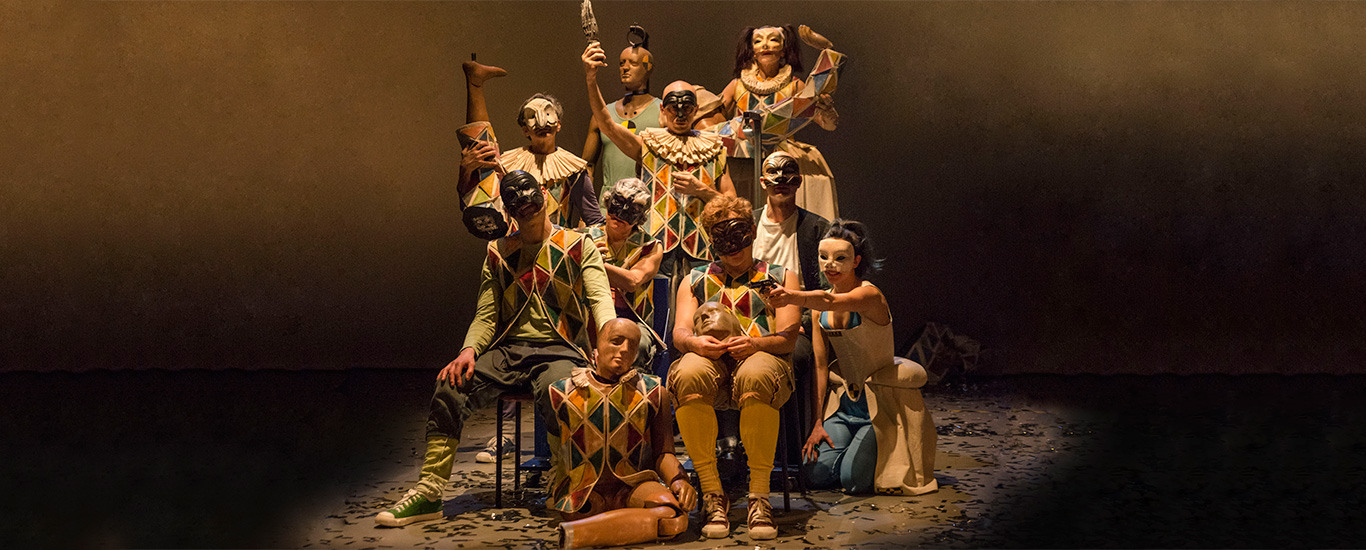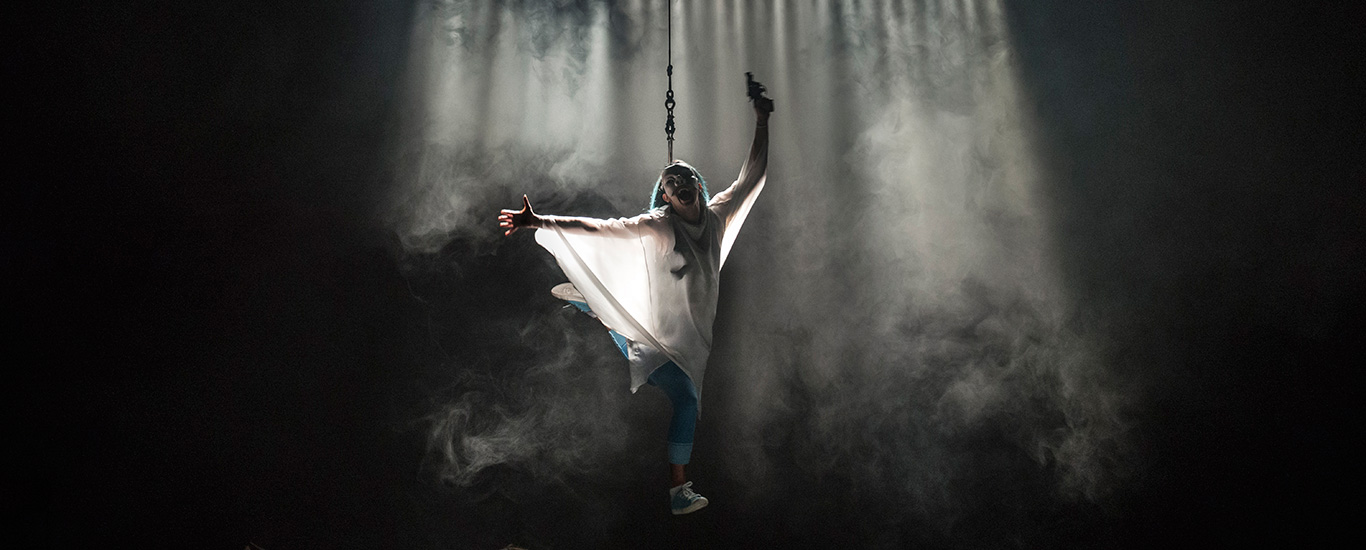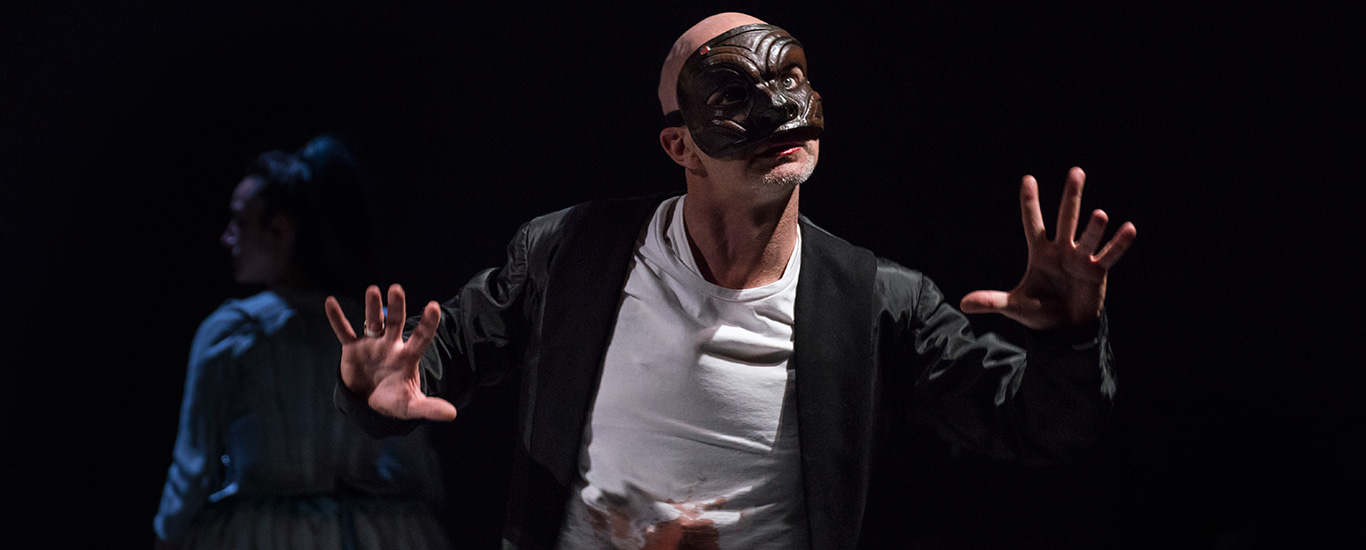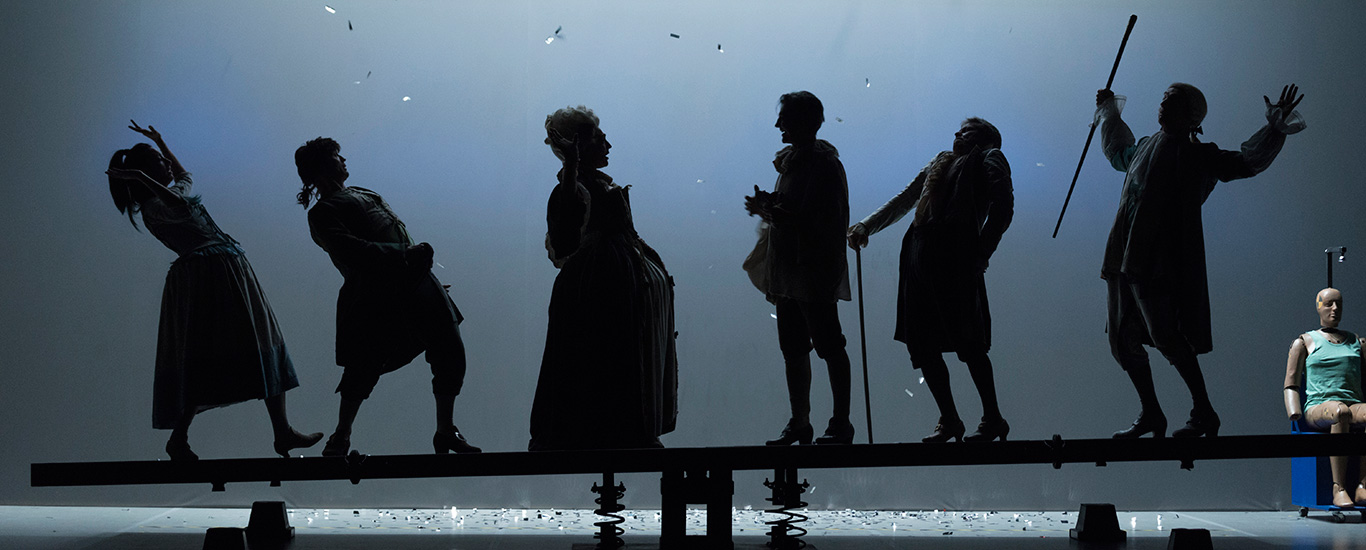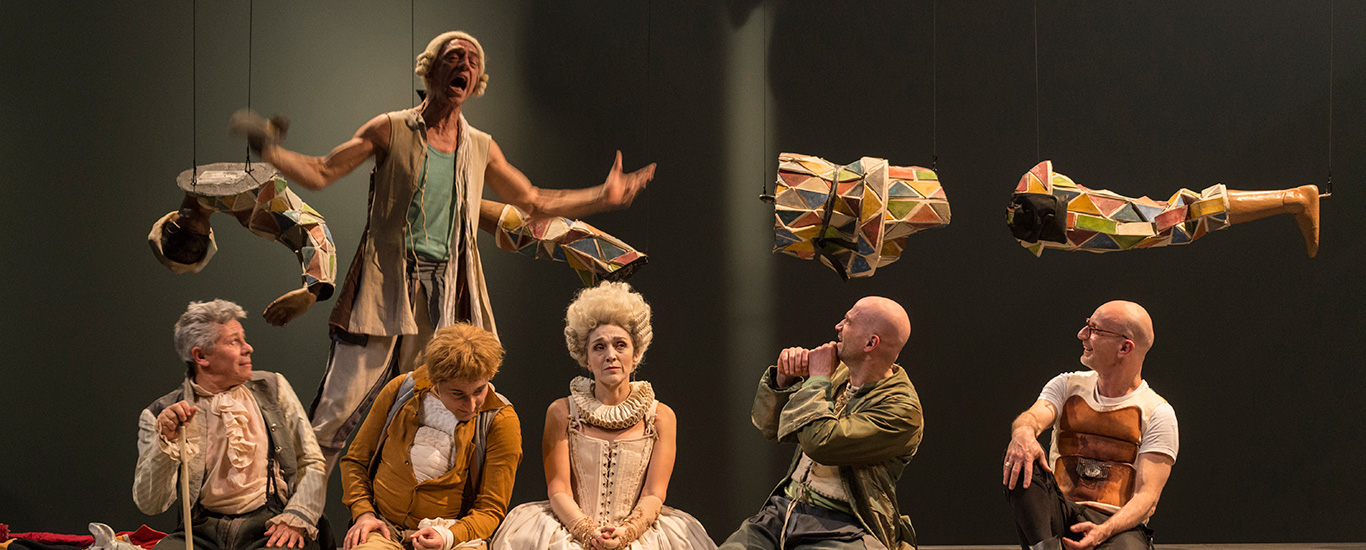DATE AND VENUE
{{item.tarih}}, {{item.mekan}}
Lasts app. 150’ with intermission.
Italian with Turkish surtitles.
After the Play: Q&A with director and performers (18 November)
PICCOLO TEATRO DI MILANO – TEATRO D’EUROPA
- Written by: Carlo Goldoni
- Adapted and Directed by: Roberto Latini
- Set Design: Marco Rossi
- Costume Design: Gianluca Sbicca
- Light Design: Max Mugnai
- Music and Sound: Gianluca Misiti
- Performers: Roberto Latini (Orazio) Elena Bucci (Placida / Rosaura / Beatrice) Marco Sgrosso (Tonino / Pantalone / Eleonora) Marco Manchisi (Lelio) Lucia Marinsalta (Vittoria / Colombina) Marco Vergani (Eugenio / Florindo) Savino Paparella (Anselmo / Brighella) Francesco Pennacchia (Petronio / Dottore)
Istanbul Theatre Festival is proud to play host, once again after eight years, to the Piccolo Teatro, with a new adaptation of Goldoni’s Il Teatro Comico. The Piccolo Teatro di Milano has a history which is closely bound to Carlo Goldoni (1707–1793) and his plays: in 1947, during the first season of the Piccolo, its founder, the famous director Giorgio Strehler, staged Harlequin Servant to Two Masters, a show which has become a legend in European theatre. Eight years ago the Piccolo was a guest at the Istanbul Theatre Festival with another production by Goldoni, The Holiday Trilogy, staged and performed by Toni Servillo, a show that toured world-wide for three years, always playing to full houses. This time, the Piccolo is presenting Il Teatro Comico, a play in which Goldoni went beyond the stereotypes of the Commedia dell’Arte and its masks and created original characters. A director who examines classics with a contemporary eye, Roberto Latini gets right to the heart of the play. Working with and on his actors, he has looked into the recent past of Italian theatre, seeking to live up to its legacy, but also imagining the possibilities for the future of theatre throughout Europe.
The tour is promoted by the Italian Ministry of Foreign Affairs and International Cooperation, in collaboration with the Italian General Consulate and the Italian Cultural Institute in Istanbul, as part of the project ‘Italy, Culture, Mediterranean’.


